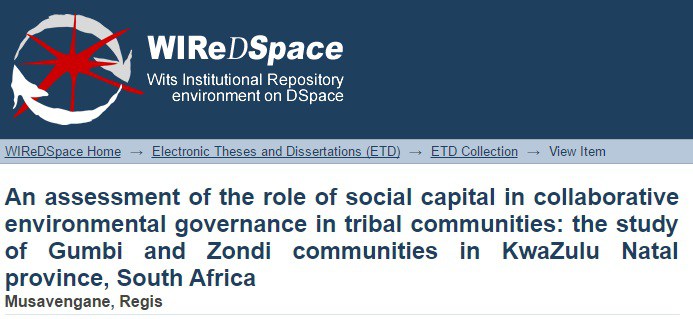Resource information
Political transformations in most developing nations have been accompanied by vast land claims by indigenous communities who were forcibly detached from their traditional land during colonisation and apartheid-like dispensations. In the context of sub-Saharan African countries (including South Africa), the need for land reform has been aggravated by the great scarcity of farmland. However, most of the reclaimed land is in areas pursuing conservation activities. Now, caught between owning the land and pursuing conservation as a land use option to improve livelihood; local communities have tended to form partnerships and collaborations with external stakeholders in managing communally owned natural resources. Collaborative management is perceived as a sustainable route in governing common pool natural resources in re-claimed areas. It is in this regard, that this research aims at establishing the role to which social capital can be instrumental in promoting sustainable governance in co-managed community game reserves in Kwa-Zulu Natal


